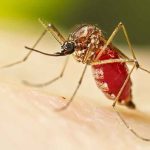Dr. N. Munal Meitei,
Environmentalist email: nmunall@yahoo.in

“Without nature, we are nothing. But we are out of harmony with nature,” UN Secretary-General Antonio Guterres.
Health is wealth and the health of the planet and living beings are equally important. World Health Day which celebrate on 7 April has the theme, “My health, my right” in this year. Health comprises the aspects, including the quality of life determined by physical, mental, chemical, biological, social and psychological factors affecting the present and future generations.
But now humanity has become a weapon of mass extinction. Climate is taking away our right to breathe clean air and pollution is claiming a life for every 5 seconds. WHO found that at least 140 countries recognize health as a human right in their constitution. But countries are not passing the laws to ensure their populations to access health services and as such at least 4.5 billion people — more than half of the world’s population — were not fully covered by essential health services in 2021.
This year’s theme was chosen to champion the right of everyone, everywhere to have access to quality health services, education, and information, as well as safe drinking water, clean air, good nutrition, quality housing, decent working and environmental conditions, and freedom from discrimination.
Health depends on good quality food, safe drinking water and adequate shelter. Environmental disasters like storms, hurricanes and floods kill many peoples. Unmanaged water triggers epidemics and numerous diseases. The assumption that the only indicator of human progress is economic growth is not true. We expect urbanization and industrialization will bring in prosperity, but in long run human value and environment are the priority. People with low incomes group, children and pregnant women are at higher risk.
By disrupting the delicate ecological balance that regulates our planet’s air, water and nutrient cycles, we risk the entire food chain and human health. Agriculture pesticides that enhance food production have affected both the producers and consumers.
A clean environment is essential for human health and well-being. However, the interactions between the environment and health are highly complex and difficult to assess. The best-known health impacts are attributed from climate change, unsafe water and sanitation, vector-borne diseases, ambient air & indoor pollution, toxic hazards, loss of biodiversity, land degradation and environmental challenges. Depletion of ozone layer also impacted on global climate and human health, increasing the amount of UV radiation reaching the Earth.
A better health status of society will bring about a better environment. Every minute, 5 children in developing countries die from malaria or diarrhoea. Every hour, 100 more children die as a result of exposure to indoor pollution. Every day, almost 3000 people die from road injuries mainly to poor pedestrians. Every month, nearly 19000 people die from exposure to toxic chemicals and pesticides. Every year 12 million people across the world die due to exposure to chemical hazards and poor air quality.
Simply for preparing a meal, 4.3 million people mainly women and children die every year. Unsafe water or insufficient hygiene results in 3.5 million deaths worldwide, representing 25% of the deaths of children below 14 years.
WHO cautions, 250,000 additional deaths could potentially occur each year between 2030 and 2050 as a result of climate change. Environmental degradation is estimated to cause 174–234 times as many premature deaths as occur in conflicts annually. Mental health issues also rank among the ten largest non-fatal threats in most countries.
In India, one in every fifth child under age of 5 dies due to diarrhea. Basic environmental needs do not reach over 1000 million people living in abject poverty. Heat waves also cause illness and death to elderly persons who are having heart or respiratory diseases. Thus environmental hazards kill millions globally every year. But while the victims share in a common fate, their problems are not reflected in Government policies and decisions.
Economic inequality and environmental changes are closely connected to each other. Development strategies that do not incorporate ecological safeguards always lead to ill health and can’t promote healthy environment. Better health can only come from more sustainable environmental management.
Changing agriculture patterns away from harmful pesticides, herbicides and insecticides with alternatives like bio-pesticides will give the positive health. There is need to change from using conventional to green energy like solar, wind and ocean power. Providing clean energy will lead to better health. Poverty is closely related to health and unhealthiness is the consequence of improper environmental management.
In an unhealthy environment, the pandemic and epidemic are always ready to shape to human. Important ecosystem services such as pollination are lost challenging the food security and livelihood. Finally, unless efforts are made to conserve for our environment, the health of human and other living beings will never be safe.













